Newbury Branch meeting at West Berkshire Museum, 9th February 2022
Speaker: Phil Wood
West Berkshire war memorials
The Falkland memorial in Wash Common is West Berkshire’s oldest war memorial, erected in 1878 to honour the dead of the first battle of Newbury in 1643. It is now owned by the National Trust.
The years immediately after the Great War saw the greatest impetus for erecting war memorials, but there was no co-ordinated programme, resulting in no national pattern or model; each community made its own decisons.
There was not even any central record of fatalities. Relatives put forward names for inclusion, which is why some are missing or have been added later. Suicides and those shot for alleged cowardice were at first excluded, as were some deaths from disease. The question of adding names later is still controversial.
In some cases families refused, being reluctant to accept that their relative was indeed dead rather than missing. Other objections to memorials came from pacifists, or from non-Anglicans (many memorials were placed in Anglican churchyards).
Memorials served as a focus for bereaved families for whom there was no known grave.
Village crosses are the commonest form of memorial in west Berkshire. The Commonwealth War Grave cross of sacrifice was designed by Sir Reginald Blomfield. The larger stone of remembrance was the work of Sir Edwin Lutyens. Burghfield has a book of remembrance, Cold Ash and Brightwalton have wayside crosses. Shefford Woodlands chose the more practical option of a memorial hall.
Materials range from wood and stone, to brass for plaques, and they may be ornately carved. Leckhampstead’s used combat material such as shell cases and a bayonet. Stained glass was favoured by wealthy families, usually wanting to commemorate a single man.
Some churches, such as Combe, list all who served in a roll of honour. Fawley was an example of a “thankful village” losing none of its young men to WWI, although a cross in the church comemmorates the non-resident landowner, Philip Wroughton.
Memorials are sometimes moved, such as that of the URC, which is now in the town hall and, among local workplace memorials, that of Elliots is now in the museum. Later wars (WWII, the Falklands war, the Gulf war, Serbia/Kosovo, Iraq and Afghanistan) have given rise to extensions and additions. Pangbourne College created an entire chapel for the Falklands war. Thatcham has paving stones naming its VCs of three wars.
Commonwealth war graves, maintained by the CWGC under government contract, have a distinctive design, and can be found in many west Berkshire churchyards. They carry a regimental badge as well as personal details. The commission renews inscriptions when they become illegible.
Missing names may still be added as new evidence is traced, a cause championed by an organisation called In from the Cold.
